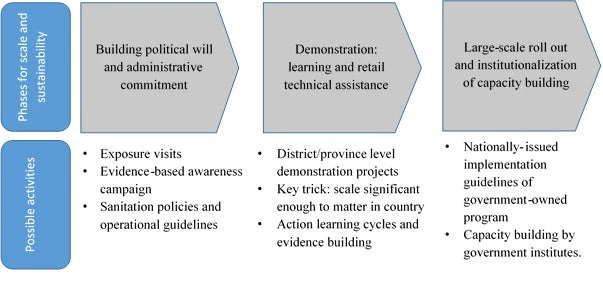Public sector resources alone cannot fulfill the development objectives of many countries. Yet the capacity of private sector in the development dynamics of countries remains hugely untapped. This is felt most acutely in the delivery of infrastructure projects.
Across emerging markets, much needed economic growth is hampered by a shortage of roads, mass rapid transit systems, telecommunications, power plants, sanitation, medical facilities, and other basic infrastructure, all of which are much needed to achieve sustainable development. However, funding the multitude of projects required in emerging markets is a huge challenge for governments that face budgetary constraints and limited borrowing capacity.
These conditions are encouraging governments to consider private investment as a promising option to circumvent their resource constraints and improve the delivery of public services – in particular, through public-private partnerships (PPPs). At the same time, many governments are also discovering that forging such partnerships is fraught with a number of difficulties.
Part of the reason is that PPP projects are quite complex to prepare, structure and transact, and usually require specialized skills not always available.
To address this, many governments are acknowledging the need for training to build up the skills and experience necessary to benefit from PPPs. This was reaffirmed by the United Nations Economic and Social Commission for Asia and the Pacific (ESCAP) PPP Survey, in which limited knowledge and capacity related to PPPs was identified as a major obstacle to PPP development in the respondents’ countries (see figure below).
Perceived obstacles to PPPs in the Asia-Pacific region

Recognizing these challenges, the Addis Ababa Action Agenda (AAAA) adopted at the Third International Conference on Financing for Development put capacity-building at the core of its agenda, including in the area of PPPs, and called for UN regional Commissions to mobilize their expertise.
In line with the AAAA, the ESCAP secretariat has developed a new tool to assist governments of the Asia-Pacific region in approaching PPPs.
 The
ESCAP E-Learning series on PPPs was launched in 2015 to provide a flexible and cost-efficient way of building capacity while reaching out to a large number of people. The series is part of the long-standing PPP program that the ESCAP secretariat has been implementing to support PPP activities that contribute to sustainable development. Under its program, ESCAP provides independent advocacy on PPP policy frameworks and facilitates the sharing of PPP experiences and best practices.
The
ESCAP E-Learning series on PPPs was launched in 2015 to provide a flexible and cost-efficient way of building capacity while reaching out to a large number of people. The series is part of the long-standing PPP program that the ESCAP secretariat has been implementing to support PPP activities that contribute to sustainable development. Under its program, ESCAP provides independent advocacy on PPP policy frameworks and facilitates the sharing of PPP experiences and best practices.
Consisting of six modules that cover major areas related to PPPs, the E-Learning series offers essential knowledge for government officials considering PPPs and is an ideal introduction to more advanced courses. The E-learning series can be accessed free of charge on the ESCAP website.
As part of this E-Learning series, the ESCAP Secretariat recently launched a new user-friendly test for policy-makers and others who involved in PPPs to assess their current knowledge on PPPs. Upon completion, participants receive a PPP Awareness Certification demonstrating their knowledge in this field. The test can be accessed and taken via the ESCAP website.
Check out the E-learning series today and tell us how you like it by leaving a comment below!


Join the Conversation